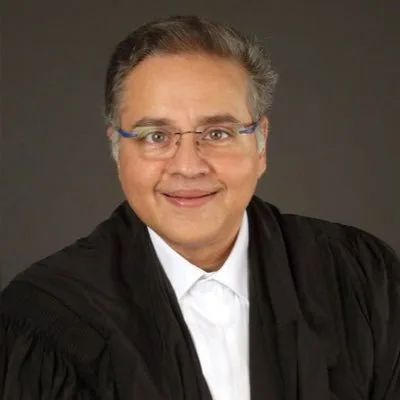The growing debate over the boundaries of comedy has once again taken center stage as popular YouTuber Ranveer Allahbadia and stand-up comedian Samay Raina face a legal complaint for allegedly promoting “vulgar” content under the guise of dark comedy. While the law may protect their right to free expression, the moral implications of such content have sparked a heated discourse.
The Controversy
The controversy erupted after a Supreme Court lawyer filed a formal complaint against the duo, accusing them of degrading public morality through their participation in “India’s Got Latent,” a reality show that has been criticized for its edgy humor. The complaint alleges that their content promotes obscenity and could negatively influence younger audiences.
Dark comedy, by its very nature, treads a fine line between humor and offensiveness. It often explores sensitive themes such as death, tragedy, and societal taboos in a satirical manner. However, critics argue that certain forms of dark humor cross ethical boundaries, making it difficult to distinguish between what is merely provocative and what is outright offensive.
Legality vs. Morality
From a legal standpoint, Indian laws on freedom of speech, particularly under Article 19(1)(a) of the Constitution, provide protection to comedians and content creators. However, this right is not absolute and comes with reasonable restrictions under Article 19(2), which includes curbs on speech that disrupts public order, decency, and morality. Sections of the Indian Penal Code (IPC), such as Section 292 (obscenity), Section 295A (hurting religious sentiments), and Section 67 of the Information Technology Act (publishing obscene material online), have often been invoked against stand-up comedians and digital creators in the past.
Despite these legal safeguards, moral outrage remains a powerful force in shaping public perception. Many argue that while comedians have the right to push boundaries, they also have a responsibility to respect cultural sensitivities. The backlash against Allahbadia and Raina reflects the growing sentiment that some jokes, even if legally permissible, are in poor taste and contribute to the normalization of offensive discourse.
Public Reactions

Dr. Sujay Kantawala, an Advocate practicing at the Bombay High Court, expressed strong disapproval, stating, “It is highly distasteful, particularly in a culture where parents are revered. For the sake of cheap publicity, some individuals seem willing to go to any lengths. However, prima facie, there does not appear to be any violation of the law—though morally, it is certainly questionable. The larger concern is the direction our society is taking—we must set boundaries. Comedy should not turn the nation into a mere Speakers’ Corner at Hyde Park, where anything goes.”
He further emphasized, “The right to freedom of speech and expression under Article 19(1)(a) of the Constitution comes with reasonable restrictions. It cannot be misused or exploited at will. The time has come for a serious debate on this issue.”
The response from the comedy and entertainment industry has been mixed. While some fellow comedians have defended Allahbadia and Raina, citing artistic freedom and satire as essential elements of creative expression, others have called for greater self-regulation in content creation.
Social media has also been divided. Supporters argue that audiences should have the choice to engage with or ignore controversial content, rather than imposing censorship. Opponents, however, believe that comedy should have ethical limitations, especially when it reaches a wide audience through digital platforms.
What Lies Ahead?
As the legal proceedings unfold, the case against Ranveer Allahbadia and Samay Raina highlights the ongoing struggle between legality and morality in the realm of artistic expression. While it is unlikely that dark comedy will be outright criminalized, content creators may need to navigate the evolving landscape of public sentiment and legal scrutiny with greater caution.
The broader question remains: should humor be judged solely by its legality, or must it also pass the test of moral and cultural acceptability? The answer, as history suggests, may continue to evolve with time and societal norms.
Read More: Clause Imposing Service Tax On Lottery Distributor Is Unconstitutional: Supreme Court Uphold Sikkim High Court’s Decision

